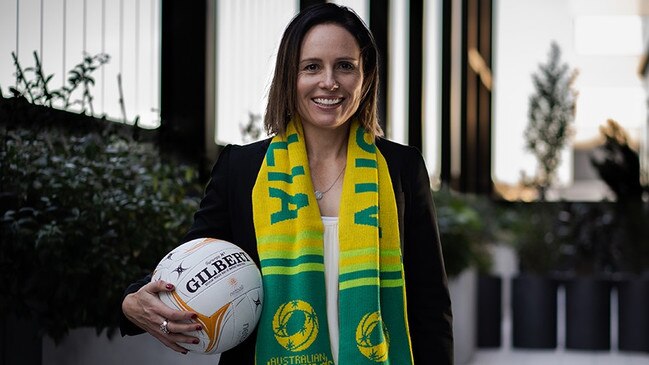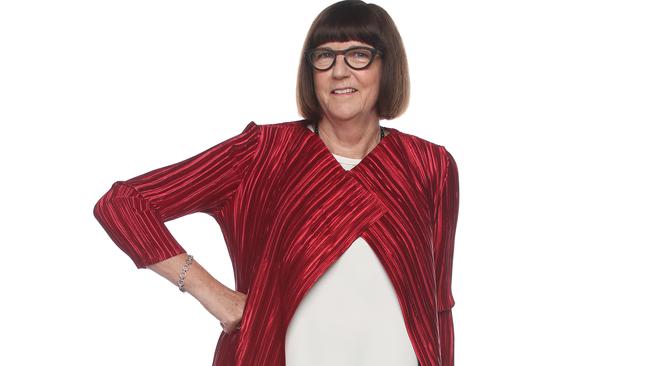Netball Australia on verge of financial ruin with losses and debts amounting to $11 million
Netball Australia’s debts and losses have reached a staggering $11 million combined putting the sport on the brink of ruin. Read the inside story of how the sport spiralled into a crisis.

Australia’s most popular female sport is on the brink of financial ruin with auditors warning Netball Australia is in danger of collapse after years of bad fiscal management dating back to the launch of the Suncorp Super Netball series.
A special News Corp investigation has pored over pages of internal documents and emails that pinpoint key decisions that have left one of Australia’s most popular sports on its knees facing possible foreclosure within 12 months if they can’t clear their debts.
The investigation has uncovered netball has been surviving off special government handouts well before Covid struck after the decision was made in 2016 to walk away from the trans Tasman series to launch the SSN series without a commercially viable plan that delivered strong revenue.
It means Netball Australia is now at a point where it has lost $7.2m over the past two years and has bank debts of approximately $4 million that are due and payable at the end of next year.
In addition to the Trans Tasman impact, Netball’s debts have been exacerbated by:
* The previous broadcast deal.
* Bank loans on assets.
* Player pay rises with a salary cap that now consumes 92.85 per cent of the new broadcast revenue.
* Covid hubs.

Netball Australia (NA) CEO Kelly Ryan confirmed that a ‘going concern’ notice had been issued to the organisation.
A ‘going concern’ warning is issued by a company’s management or auditors — or both — when they believe that within the upcoming 12 months from the date of the report “it is probable” the company will not have the liquidity to pay its obligations as they come due, or will violate a debt covenant.
Ryan said the sport’s leaders could not afford to be “paralysed by fear to make the tough decisions” and that they must become ‘business minded in order to survive.
“The landscape of sport is very different and we have to start running netball like a business ... there is a legacy left from past administrators [regarding financial management],” Ryan said.
“We have a ‘going concern’ notice from our auditors, which highlights just the sensitivities of NA’s financial position at this particular moment.
“We do not take this lightly.
“We can no longer be paralysed by fear to make the tough decisions - our stakeholders have to understand and have faith in the appointments that have been made.”
WHAT HAPPENED?
While finances have been in trouble for many years, the situation worsened when Netball Australia decided to turn its back on the trans-Tasman competition with New Zealand.
“Netball Australia did not think the New Zealand teams were good enough to be part of it,” an insider said.
Multiple netball insiders on both sides of the ditch revealed the sudden unravelling of the groundbreaking competition was instigated by Australia. New Zealand wanted to stay.
“It was a board decision but it was absolutely driven by Netball Australia CEO Kate Palmer. Netball Australia was banking on a big payday from the broadcast deal,” an insider said.
“Sky New Zealand had been putting in about $3 million and suddenly that was gone.”
Another added: “While finances were strained before, this decision blew up Netball Australia’s books.”
Palmer declined the opportunity to comment when contacted by News Corp.

Breaking up with our Tasman neighbours meant Netball Australia turned its back on $3m before negotiating a new broadcast deal with Channel 9.
Involving the top echelon of players in five franchise teams from each country, the competition was played on either side of the Tasman over four months, with more than 11 million television viewers and 224,000 spectators across a season.
The new broadcast deal had no rights fee, rather a percentage deal split of the total sponsorship and advertising revenue for SSN between Nine and NA.
NA commercial fortunes were now tied to TV ratings like never before despite traditionally being a poor performer in this area.
In 2020, Netball Australia took out a $2.7 million-dollar loan against its own building in Fitzroy. Palmer had left the organisation in 2016.
This loan plus an additional $3.2 million in government grants kept the organisation afloat and in 2020, NA posted a $2.8 million loss instead of registering a $7 million loss.

PLAYER SALARIES AND A CIVIL WAR
Ahead of the June 23 AGM, current CEO Ryan said the rise of women’s leagues in other sports has created intense competition to grow the sport of netball.
Ryan has been unafraid to make tough calls - which have sparked a netball ‘civil war’ - like moving this season’s SSN grand final to Perth to secure a $650,000 windfall for the code.
Of the $300,000 injection for the grand final, NA plans to offer $125,000 as prize money for the players of the two grand final teams.
It comes as the sport’s players receive a larger portion of broadcast revenue than any other Australian sport as 92.85 per cent.
To put this into perspective, the NRL’s total broadcast revenue for 2023 is $400 million a year with player salary caps and projected changes meaning 44.62 per cent of the TBR cover this aspect of the game.
No doubt more tough business calls are to come from Ryan.
But ahead of Sydney hosting Netball World Cup in 2027, Ryan thought the time was right for a bigger more ambitious game - such as her controversial decision to sell the SSN grand final.
Ryan told News Corp she won’t buy into the noise around the controversial grand final move and said she was focused on making NA financially viable.
As a “result of all of the historical financial context” the board has charged Ryan to make necessary decisions to reverse Netball Australia’s financial position.

GOVERNMENT BAILOUTS
In analysing Netball Australia’s financial statements and reports lodged to Australian Securities and Investments Commission, and in follow up conversations with netball insiders,
A number of alarming findings include:
* Suncorp Super Netball cost $8 million to run in 2020
* SSN Total Broadcast Revenue (TBR) from Fox is $7 million per annum, total player payments are $6.5 million- that’s 92.85 per cent of TBR.
To put this into perspective, the NRL’s total broadcast revenue for 2023 is $400 million per annum, team salary cap projected $10.5m x 17 (new Redcliffe team) = $178.50m in total player payments= 44.62 per cent of TBR.
* Former Sport Minister Bridget McKenzie authorised a $2.5 million bailout grant for Netball Australia in 2018, bypassing the board of federal funding agency Sport Australia;
* McKenzie, an avowed netball fan and co-chair of the Parliamentary Friends of Netball, authorised the one-off payment to be made through the Health Department;
* McKenzie authorised the grant after Netball Australia complained that the broadcast deal for its Super Netball series had not proved as lucrative as it had hoped;
* The grant application was not made through Sport Australia – then known as the Australian Sports Commission – and it played no role;
* Then chair John Wylie was so enraged he threatened to send in its own special investigations team;
* Wylie argued the officials described the ordinary business challenges that all sporting bodies faced, rather than justification for a special payment.
* In December 2019, Netball Australia received another Federal Government grant of $2 million for a “digital transformation project”.
Crucially for Netball Australia the $30m Federal Government commitment boasted about by Tim Klar, Executive General Manager of Strategy, as a “once-in-a-generation windfall for the game” in the 2019 annual report never materialised.
CHANGES AT NETBALL
In the past 12 months, Netball Australia has installed a new board which consists of six independent directors and three that are elected by the states and territories.
Previously six NA board members were elected by the states and territories governing bodies - with just two independent directors.
When the new - and far more independent board - took their spots around the table in June, 2021, there was a palpable feeling of “shock and concern” when they saw the financials.
As one member disclosed to News Corp - the revamped NA board have been in “crisis mode from first board meeting due to the financial situation of the organisation and are only starting to come out of that now as the business begins to stabilise”.
Ryan, who arrived from the AFL last year, has brought a far more commercial sensibility to NA.
It hasn’t gone down well with some traditionalists.
In fact Ryan’s financially canny decision to sell the Super Netball grand final to Perth - which reaped a $300,000 cash injection and $650,000 all up - has caused outrage within the sport.
Marina Go, who took on the NA board chair role a year ago to transition the organisation from the old structure to the new, said people likening Ryan’s move to sparking a “civil war” was a gross over-reaction.

“I would encourage the netball community to view this as a positive outcome for the sport, a wonderful opportunity that shows a state government is valuing our game.
“We should be constantly asking ourselves: what else can we do to ensure that our sport is growing and sustainable and remains the number one sport for women?
“I would say that’s got to be our priority. It is certainly the board’s priority.”
Go admitted hers and her board’s main concern was not where the grand final was played rather that the organisation remained a “going concern”, given the financial position of Netball Australia at the end of 2021.
“Evolving the sport for future growth is extremely important and providing certainty around the grand final location will achieve that over time, but the financial situation that my board stepped into last year was dire and therefore urgent,” Go said.
“We’ve just had to say, well we’re just going to have to deal with this and turn the finances around. It’s one of the reasons that Kelly’s gone out and had to make some quick decisions around funding, because we’re not prepared to tolerate another year of significant losses. She’s in the process of turning that around. And she’s doing a really good job of it, which is getting criticised in the process, so it’s a very difficult situation.
“My suggestion would be that in order to grow and change and to fix some of the things that are broken about the sport’s business model there are going to be some decisions that are uncomfortable.
“Kelly’s a leader who has the courage to stare into that, and she really has to.”





